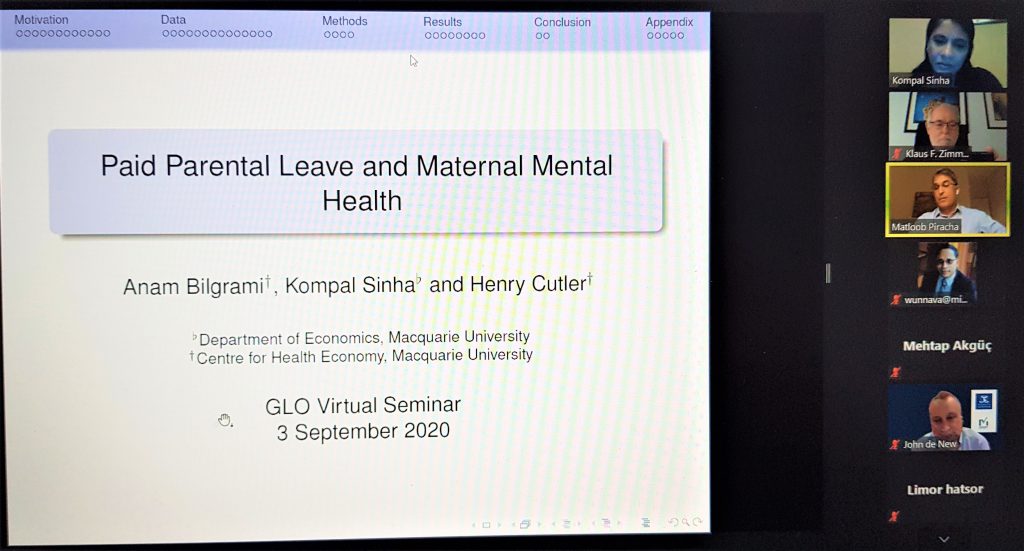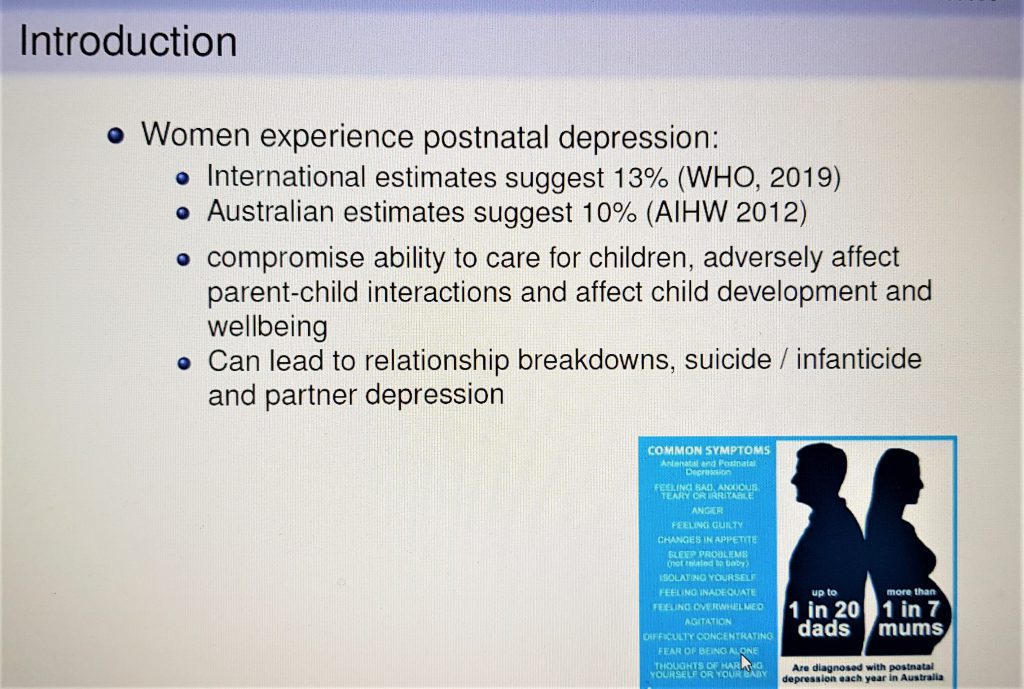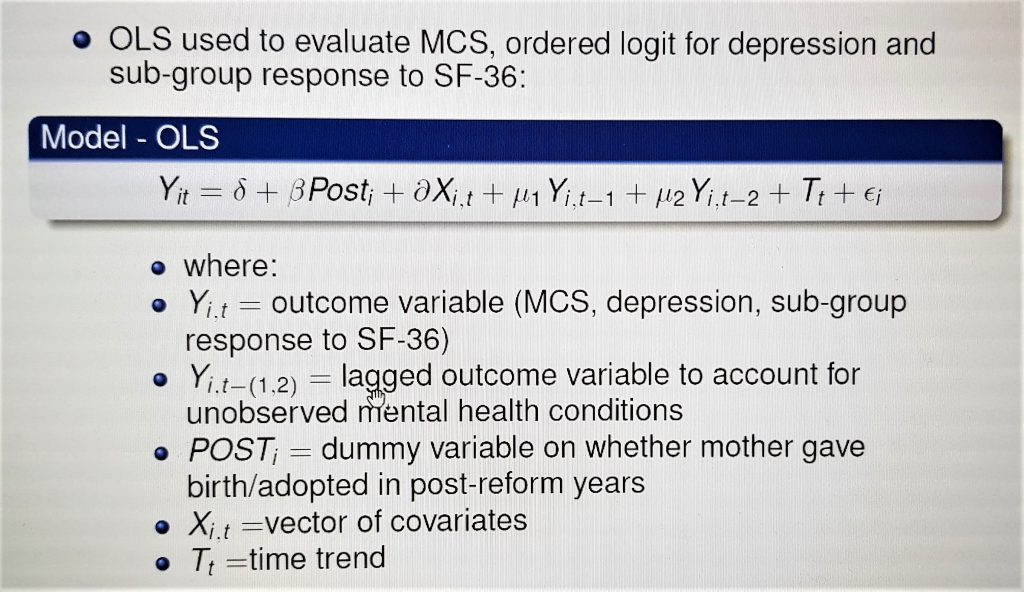The GLO Virtual Seminar is a monthly internal GLO research event chaired by GLO Director Matloob Piracha and hosted by the GLO partner institution University of Kent. The results are available on the GLO website and the GLO News section, where also the video of the presentation is posted. All GLO related videos are also available in the GLO YouTube channel. (To subscribe go there.)
The last seminar was given by Kompal Sinha on Paid Parental Leave and Maternal Mental Health. Below find a report, the video of the seminar and the presentation slides.
Announcement/forthcoming seminar:
October 1, 2020: London/UK at 1-2 pm — Alfonso Flores-Lagunes (Syracuse University and GLO)
Topic: To be announced.
Registration details will be provided in time.
Report
Paid Parental Leave and Maternal Mental Health
GLO Virtual Seminar on September 3, 2020: Kompal Sinha
Macquarie University and GLO
Associate Editor of the Journal of Population Economics
GLO Cluster Lead “Development, Health, Inequality and Behavior”
Presentation Slides. Video of Seminar.
Related paper: The presentation of Kompal Sinha is based on a joint paper with Anam Bilgrami and Henry Cutler of the Centre for the Health Economy, Macquarie University, on “The impact of introducing a national scheme for Paid Parental Leave on maternal mental health outcomes“, forthcoming Health Economics.
Abstract
Paid maternity leave is an essential component of a progressive society. It can enhance postnatal health, improve mother and child wellbeing, and deliver better labour market outcomes for mothers. We evaluate the impact of the introduction of Australia’s Paid Parental Leave (PPL) scheme in 2011 and complementary Dad and Partner Pay (DAPP) in 2013 on maternal mental health. Using a sample of 1,480 births to eligible, partnered women between 2004-2016 and a range of mental health outcomes from the Household, Income and Labour Dynamics in Australia survey, we find depression likelihood reduced significantly in post-reform years. When focusing on post-DAPP years and women whose partners had concurrent access to DAPP, significant mental health improvements were found across a wider range of measures including the Mental Component Summary (MCS) score and specific SF-36 items that have a high sensitivity for detecting major depression. Subgroup analysis suggests significant improvements applied specifically to first-time mothers and mothers with employer-paid maternity leave and unpaid leave entitlements. These results suggest that an increase in PPL and DAPP entitlements for mothers without access to employer-paid and unpaid leave entitlements, particularly those in less secure employment, may further reduce postnatal depression and improve health equity in Australia.



GLO Director Matloob Piracha
Ends;






